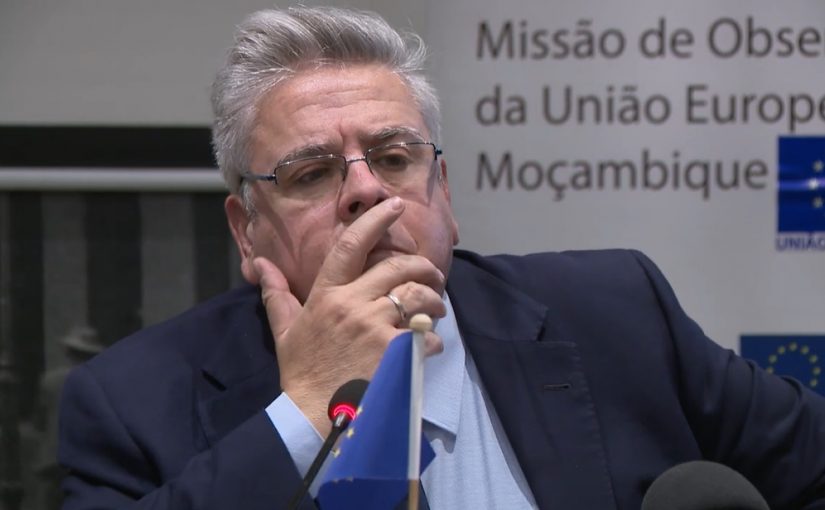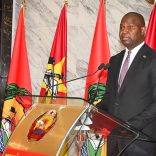Mozambique: German ambassador visits Nampula province
Mozambique: EU mission criticises police involvement in electoral processes

Screen grab: TVM
The European Union Election Monitoring Mission to Mozambique, which returned to the country this week, has criticised the performance of police during elections, stressing that the behaviour of police officers is outside “international standards” to an unacceptable extent.
“The intervention of the police at election time is not timely, it is not logical” based on “international standards”, said Nacho Sanchez Amor, the member of the European Parliament who is leading the mission, which arrived on Tuesday.
The mission chief spoke at a news conference as part of a visit to the country to assess the level of implementation of the recommendations made by the EU Election Observation Mission for the 2019 general elections.
The task of the police, Sanchez Amor stressed, is to protect the rights of voters, not to be an active part of electoral processes.
Terminando para el @eu_eeas la misión de seguimiento de las recomendaciones electorales en Mozambique, tras la misión de observación de 2019. Hay tiempo para implementarlas antes del nuevo ciclo electoral pic.twitter.com/NaIPfpjAXC
— Nacho Sánchez Amor (@NachoSAmor) March 23, 2022
He pointed to the murder of election observer Anastácio Matavele on the eve of the 2019 general elections – for which police officers ended up being sentenced to jail terms – as an example of the illegal actions of members of the force during elections.
The murder “very much marked the election campaign and created this feeling that the police sometimes do not act professionally,” he said.
Sanchez Amor did not give more examples but observer groups had already reported cases of detention of officials from opposition parties assigned to polling stations and the loss of ballot boxes by police officers.
He suggested that Mozambique’s electoral legislation should concentrate the management of elections in the hands of the National Elections Commission (CNE) to avoid the dispersion of essential competences among several entities.
“One problem that we found in the past elections was that it was difficult to attribute the responsibility of the process to a state body, which is why we recommend that the integrity of the electoral process should be the responsibility of the CNE,” said Sanchez Amor.
On the other hand, he said, the official results of the elections from each polling station should be published immediately after their tabulation, with a view to promoting the transparency of the process.
“One element of the transparency of the elections is the publication of the minutes of each polling station,” he said. “Once the results are finalised, the minutes signed and delivered to the parties, it is good that it is reflected on the CNE website.”
The EU mission has also advocated a permanent voter register, updated as necessary, as a way of preventing “the confusion” seen in previous voter registration processes.
Sanchez Amor said that improving electoral legislation and the performance of electoral bodies in Mozambique was a matter of “political will and political culture” and that greater mobilisation of the electorate in the coming elections would require more intensive communication campaign to get voters interested in going to the polls.
He also criticised the “political activism” of state-owned media, stressing the need for them to be independent from political interference.
Mozambique has local elections scheduled for next year, followed by general elections – presidential, legislative and provincial – in 2024.
ALSO READ: Mozambique: EU election mission warns against criminalisation of media work
EU hopes for major changes in Mozambican election laws – AIM













Leave a Reply
Be the First to Comment!
You must be logged in to post a comment.
You must be logged in to post a comment.